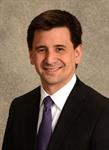| | |
 | Steve Abman, MD, Professor of Pediatrics: Dr. Abman’s research activities include clinical and laboratory oriented projects related to lung development and neonatal lung diseases, such as persistent
pulmonary hypertension of the newborn and bronchopulmonary dysplasia.
School of Medicine Bio
Research Profile |
 | Andrew Fontenot, MD, Professor of Medicine, Head, Division of Allergy and Immunology: His recent research focuses on T cell recognition in noninfectious granulomatous lung disease (in particular, sarcoidosis and
chronic beryllium disease). With an accessible target organ and a known antigen, beryllium-induced disease serves as a model of an organ-specific immune-mediated disease.
School of Medicine Bio
Research Profile |
 | Sonia Flores, PhD, Professor of Medicine, Vice Chair of Diversity, Department of Medicine: Dr. Flores examines the role that HIV proteins such as Nef play in pulmonary vascular remodeling,
inflammation, and metabolic reprogramming. She has expertise in lung microbiome/virome in HIV and how lung colonization by unculturable bacteria may lead to pulmonary dysbiosis in HIV.
School of Medicine Bio
Research Profile |
 | Fernando Holguin, MD, Associate Professor of Medicine and Public Health: Dr Holguin's translational research focuses on understanding the pathophysiology of the obese asthma phenotype. Specifically,
how obesity-associated metabolic changes affect airway epithelial mitochondrial function, nitric oxide and oxidative stress pathways. Dr Holguin's labs supports translational research in primary human airway epithelial cells as well as
phase II and III clinical research studies in asthma.
School of Medicine Bio
Research Profile |
 | Lisa Maier, MD, Professor of Medicine, Chief, Division of Occupational and Environmental Health Sciences: Dr. Maier directs a research program which focuses on defining immunogenomic and exposure risk factors and biomarkers and natural history of granulomatous disease. The goals of this program are to advance our understanding of the development of these diseases, define the disease course and predictors of early disease (diagnostic tests) and disease progression (prognostic tests) along with new strategies for prevention and therapy. National Jewish Health Bio
Research Profile |
 | Eva Nozik, MD, Professor of Pediatrics: As a pediatric physician-scientist, Dr. Grayck’s overall goal is to investigate mechanisms responsible for pulmonary vascular structure and function throughout the stages of life, and to understand how disruption in these processes contribute to pulmonary vascular disease. Her focus is predominantly on the contribution of reactive oxygen and nitrogen species and antioxidant systems in the pathogenesis of pulmonary hypertension.
School of Medicine Bio
Research Profile |
 | Irina Petrache, MD, Professor of Medicine and Pharmacology, Chief of Pulmonary, Critical Care and Sleep Medicine, National Jewish Health: Dr. Petrache investigates the pathogenesis of and repair strategies for pulmonary emphysema and COPD. Her studies have focused on the role of cell death in lung alveoli, the significance of bioactive lipid such as sphingolipids in lung responses to cigarette smoke and vasculo-protective effects of alpha-one antitrypsin. Her laboratory is also involved in collaborative work related to lung regeneration, metabolomic phenotyping in COPD, and e-cigarette research.
National Jewish Health Bio
Research Profile
|
 | Jonathan Samet, MD, MS Professor of Public Health and Dean School of Public Health: Dr. Samet has focused on the epidemiology of lung disease, including airway disease and lung cancer. His research focuses on the health risks of inhaled pollutants—particles and ozone in outdoor air and indoor pollutants including secondhand smoke and radon. He has also investigated the occurrence and causes of cancer and respiratory diseases, emphasizing the risks of active and passive smoking. For several decades, he has been involved in global health, focusing on tobacco control, air pollution, and chronic disease prevention.
Colorado School of Public Health Bio
Research Profile |
 | David Schwartz, MD Professor of Medicine and Immunology, Chair, Department of Medicine: Dr. Schwartz melds genetics and environmental sciences to study diseases that are affected by immune dysfunction or alter lung homeostasis. In terms of asthma, Dr. Schwartz has focused on the T cell skewing that is influenced through environmental stimuli through epigenetic marks. Most recently, he has found, through genomic interrogation and functional analysis, that a gain-of-function promoter variant in MUC5B is associated with IPF. He was recently awarded a program project from the Department of Defense to study the effect of MUC5B and mucociliary function in the early stages of IPF.
School of Medicine Bio
Research Profile |
 | Sunita Sharma, MD, Associate Professor of Medicine: Dr. Sharma studies the developmental origin of asthma and asthma genetics and genomics. Using gene expression profiling in human fetal lung tissue, Dr. Sharma investigates the impact of intrauterine smoke exposure on the genomic signature of human lung development with a specific interest in microRNAs.
School of Medicine Bio
Research Profile |
 | Kurt Stenmark, MD, Professor of Pediatrics, Section Head, Critical Care Medicine: Dr. Stenmark focuses on the cellular and molecular mechanisms that contribute to structural remodeling of the pulmonary vasculature and right heart dysfunction in the setting of pulmonary hypertension and acute lung injury. Dr. Stenmark is PI of an NIH funded T32 on Translational pulmonary vascular biology.
School of Medicine Bio
Research Profile |
 | Stanley Szefler, MD, Professor of Pediatrics: Dr. Szefler focuses on personalized asthma management, asthma characteristics that are associated with asthma exacerbations and response to asthma therapy, and school-centered asthma programs to assure that these children have consistent medical care.
School of Medicine Bio
Research Profile |
 | Livia Veress, MD, Associate Professor of Pediatrics: Dr. Veress research focus is on the mechanisms of chemically-induced inhalational lung injury and specializes in plastic bronchitis, bronchiolitis obliterans and pulmonary fibrosis.
School of Medicine Bio
Research Profile |
 | Carl White, MD, Professor of Pediatrics: Dr. White studies the effects of toxic inhaled industrial or weaponized chemicals on the airway epithelium, pulmonary physiology, and airway and lung fibrosis. He studies the pathogenesis and natural history of toxic chemical inhalation, and along with investigators in the Pediatric Airway Research Center, he investigates the renewal of the epithelia after toxic insults and participates in the discovery and development of rescue countermeasures after chemical inhalation.
School of Medicine Bio
Research Profile |
 | Pam Zeitlin, MD, Professor and Chair of Pediatrics: As Chair of the Department of Pediatrics, Dr. Zeitlin oversees the pediatric clinical and research programs at National Jewish Health. Her research focuses on chloride channels and CFTR regulation in cystic fibrosis, including translational strategies to enhance CFTR function.
National Jewish Health Bio
Research Profile |



























